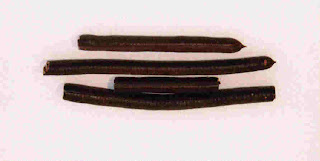Gresham’s Law, Suicidal Strategies and Pure Speculation on China
Gresham’s Law for Interest Rates
Lars Schall has an interview with Dr. Tom Fischer covering the ground in his Faux Gold Arbitrage article. The Q&A format forces Tom to compress his ideas down into short paragraphs and the interview is worth a read IMO. One quote:
"Gold is not just another commodity. It historically has the role of a world currency that cannot be inflated into oblivion. It is a financial safe haven. However, for currencies like gold, the Dollar or the Euro, contango or backwardation follows from a difference in their interest rates. For instance, because of that interest rate differential, usually either the dollar is in contango towards the Euro and at the same time the Euro in backwardation to the Dollar, or vice versa. Now replace the word “Euro” by “gold” and you get the picture. So, gold is in backwardation when its interest rate, which is also called the “gold lease rate”, is higher than that of the Dollar. The question is now: why should the interest rate of gold be higher than that of the Dollar? In my opinion, the answer is obvious: gold is the much better currency, so, you should have to pay up to get a loan in it. I would call this a version of Gresham’s Law for interest rates."
From this interest rates perspective, futures markets for currencies like gold are effectively lending (for a backwardation or decarry trade) or borrowing (for a contango or carry trade) trades. See this blog post for more detail.
Suicidal Strategies
James Turk has an interview with KWN where he asserts that "the attempt to shake out physical metal by driving the price lower is a suicidal strategy" as it "increases the demand for physical metal more than the weight of metal sold on to the market."
Now I agree with his statement that the bullion banks may well be hedged so they don't have any exposure to gold prices and that their real risk is more likely physical liquidity maturity mismatches. James notes that "we don’t know the size of the fraction of available metal backing delivery obligations" but sees the episodes of backwardation and drawdowns on "visible inventories of the ETFs and on the Comex" as evidence of their liquidity risk.
I would take exception to the quality of this evidence. Note the use of the word "visible". As I noted in this blog post years ago, the ETFs and COMEX are a minor part of the total investment stocks. We have evidence in terms of UK to Swiss to HK import/export figures that part of the visible inventory reduction is going to Asia, but we don't know where the massive amount of invisible inventory is going, if anywhere. If it is staying in London or other western warehouses, then we have to consider the possibility that there is sufficient physical liqudity for the bullion banks.
In any case, even if the above analysis is incorrect and these attempts to shake out physical are not working, don't you think the bullion banks know this? I mean, bullion banks have extensive webs into all aspects of the gold market so would they not be the first to see the impacts of their strategies? In that case why would they persist with it when it threatens their existence? I can see some validity in the shake out theory regarding April's price smash, but given the Asian response, I can't see validity of the theory that the bullion banks are suicidally repeating this strategy. If they were that stupid they wouldn't have survived as long as they have.
Pure Speculation on China
Nice to see gold making the mainstream papers in Australia in a positive way with this quote sent to me by a reader (you'll need a subscription to read the whole article):
"So here's the latest Pure Speculation gold theory: there will be no gold surplus in 2014 (as there never has been, unlike with most metals), China will keep taking advantage of the subdued price to buy both metal and the foreign mines that produce it, and one day, probably too late, Western investors will wake up to the fact that China controls so much of the world's gold and is using it to back the yuan as a reserve currency."

Comments
Post a Comment